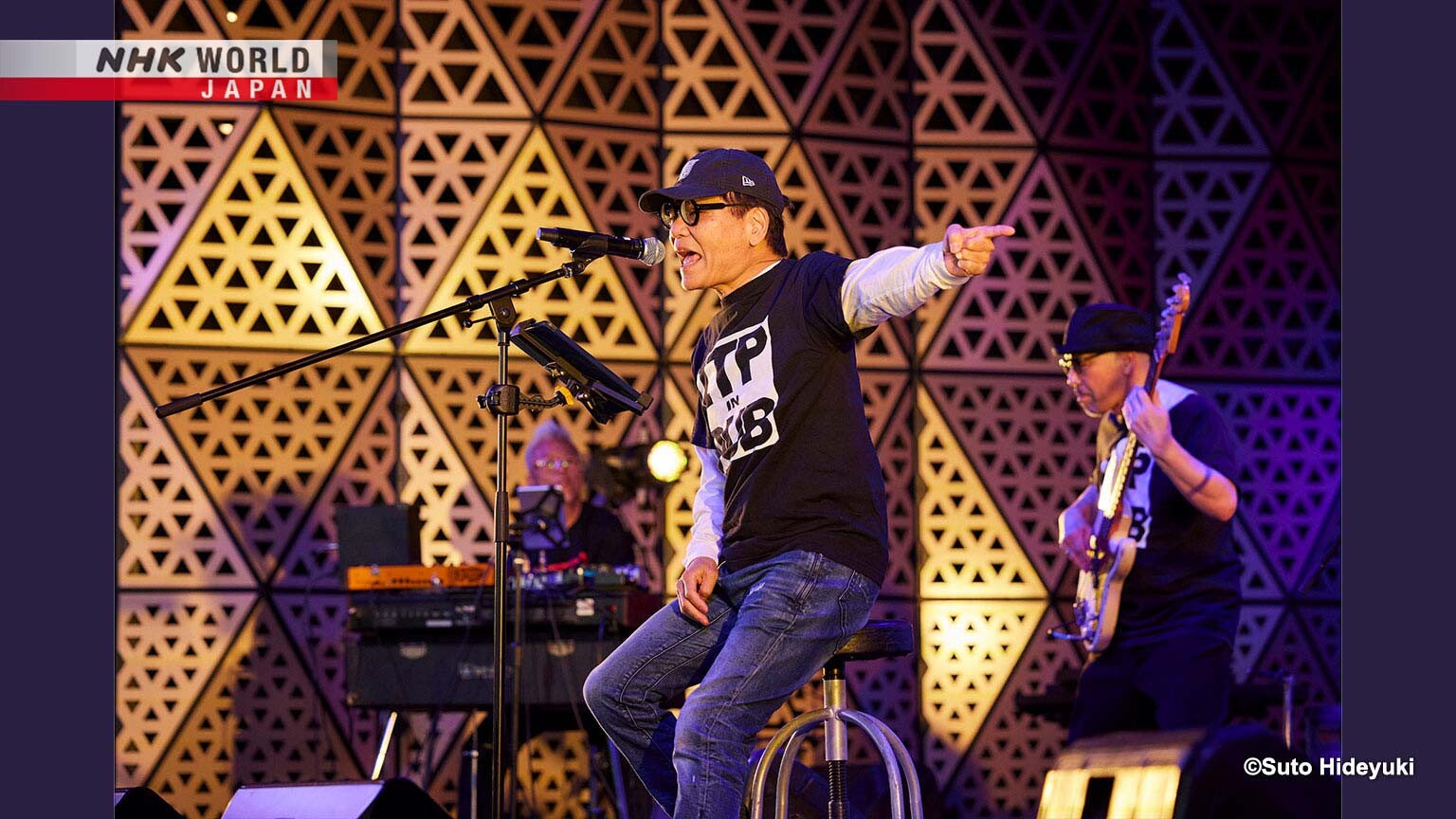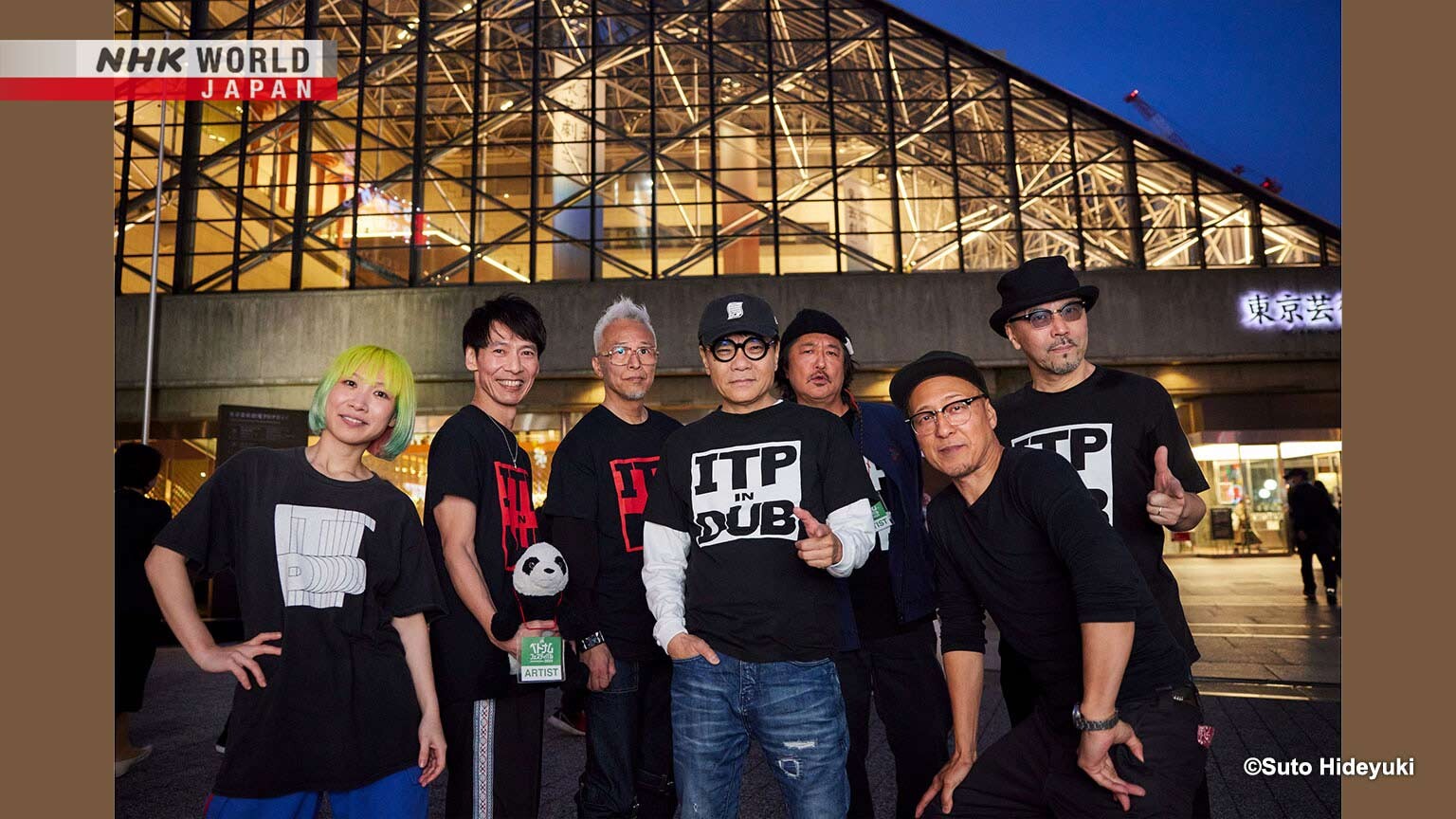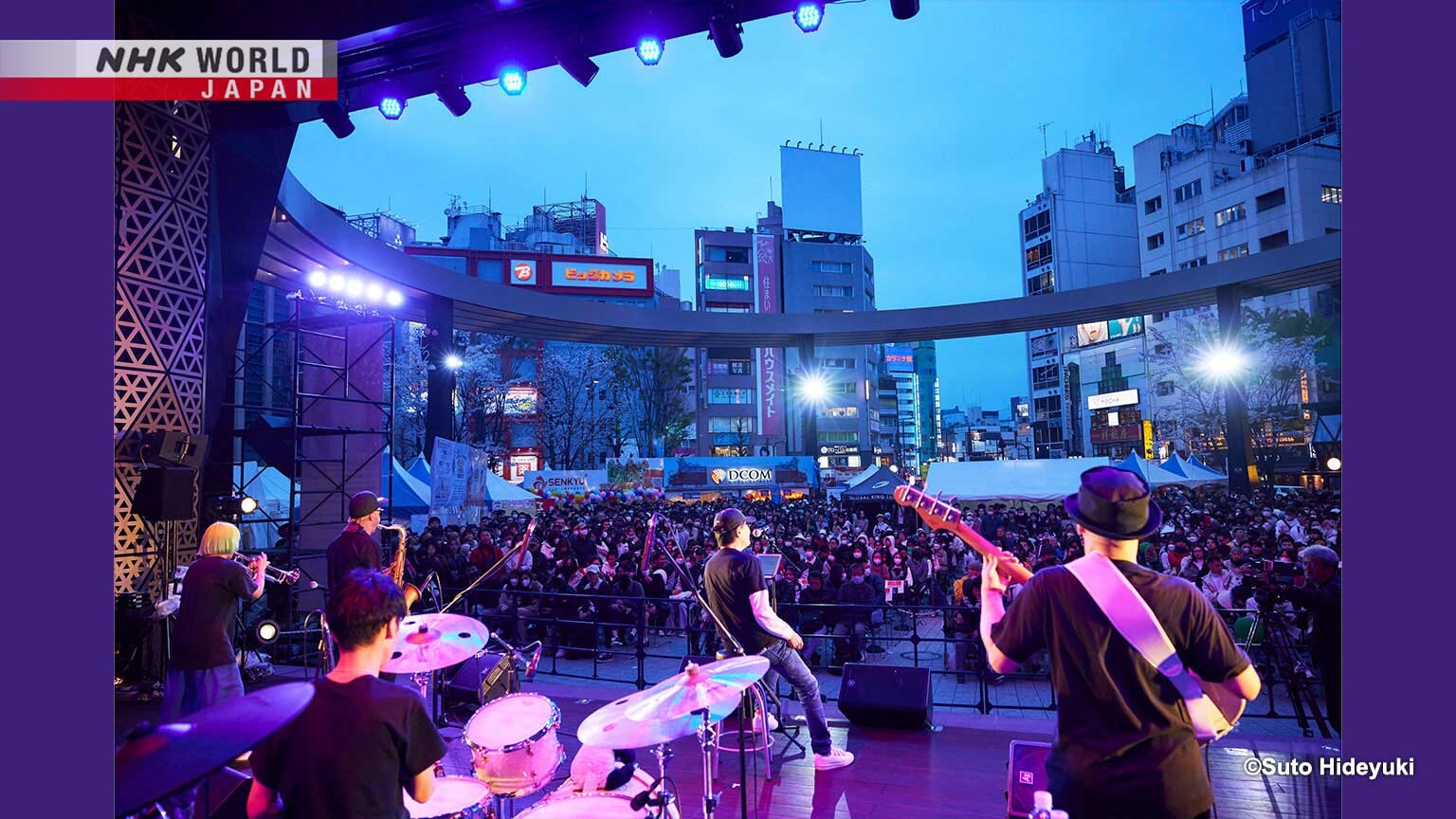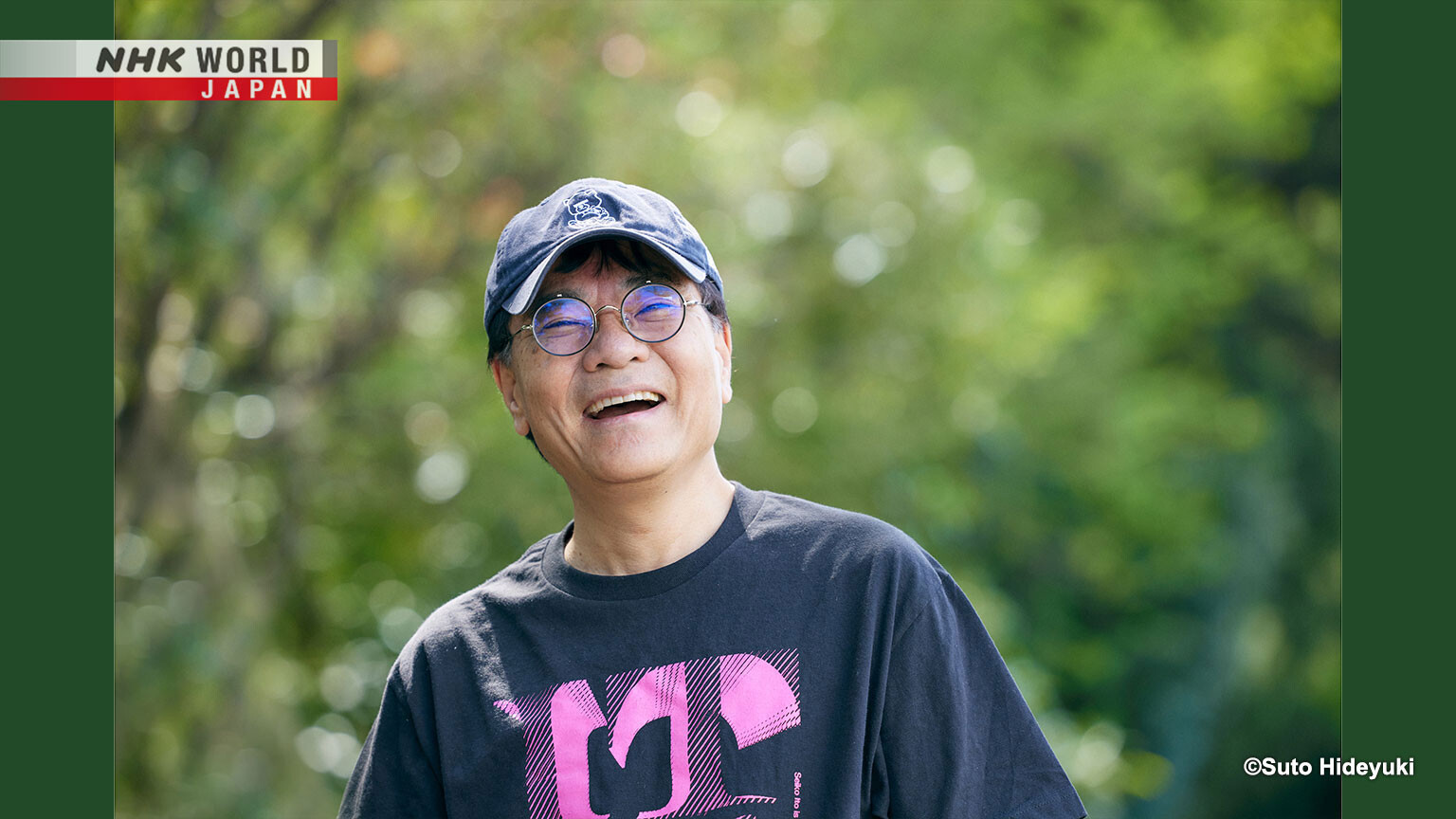Soldiers, Don't Shoot My Friend
Don't shoot my friend! Writer, and performing artist Ito Seiko visited Gaza in 2019 where he met Yasser Harb, a driver. Ito writes and reads a poem to improvised music, thinking of Yasser and Gaza.




Transcript
You know, I think the whole world
is going to see this as a massive failure
on Israel's part, not just the next 10, 20 years, but for a very long time.
Ito is a pioneer of Japanese rap.
In the late '80s, he put Japanese to music and beats in search of new forms of expression.
Ito also started writing at this time.
Sozo Radio (Imagination Radio), about the Great East Japan Earthquake, has been translated into seven languages.
He gives readings of his poetry and stories to improvised music.
If Israel took over all of the Gaza Strip and the West Bank,
Israel would become "another Gaza."
It's surrounded by Arab states.
It'd be isolated, just like Gaza was.
A somewhat bigger Gaza, perhaps.
Ito's performance owes its inspiration to Japanese traditional arts, especially Bunraku.
Welcome.
I'm Ito Seiko, your navigator for today.
I discovered Bunraku, by accident,
about 40 years ago, soon after entering university.
I've enjoyed it ever since, and now I have the great honor of standing here.
For hundreds of years, people have refined the process
of combining music and words in order to create art.
Bunraku combines narrative recitation, shamisen music and puppetry.
It's the blues, basically.
It gets at the depths of human emotions.
It makes me stop and think.
I wonder if my words affect people,
or if I could convey the feeling better with different vowel sounds.
I've learned a lot from Bunraku regarding expression,
rather unexpectedly.
Ito composed a poem
in response to the Israeli attack on Gaza.
We entered a place like a fort
where they checked our passports.
From the mezzanine, a man was pointing a gun at us.
It was such a tense situation...
I never expected to come to such a place.
In 2019, Ito visited Palestine for a report on Médecins Sans Frontières.
There was a laid-back, 19th-century-like atmosphere
with donkeys carrying things...
They're good people, obviously.
It felt like a different era, because of the blockade.
There were protests every Friday.
Most often, I saw protesters got shot in the leg, from behind,
with bullets that don't penetrate, but twist and rend within.
They were shot by these bullets that break bones and tear flesh.
And the bullets were so filthy that they caused terrible infections.
My impression was that the soldiers were shooting to cause great pain.
To hurt, but not to kill. That's revolting.
No media will talk about it, I'm sure.
Such a diabolical war...
I said to myself, "this is the war of our time."
One man still saw in his dreams the moment when he was shot,
when his eyes met those of the soldier,
and he couldn't forget her eyes. That's PTSD, right?
There was a boy, about 12 or 13.
He had lost one hand, and he seemed to feel phantom limb pain.
He was undergoing a sort of treatment with electrodes.
I wondered what happened to him.
Gaza is surrounded by a wall.
One day, he found a toy by that wall.
Maybe thrown over from the other side, from the Israeli side.
He picked up the toy, and got his hand blown off.
That's war.
Memories of his father
I often went to the public bath with my father.
Some parts of his skin were peculiarly smooth.
He didn't talk much about it.
But one day he said, "they're burn injuries."
I didn't fully get it, so I asked, when I was more mature,
"What happened, Dad?" And he said
when he was very little, he was by an irori fireplace,
and he was pushed from behind, maybe by one of his siblings.
His father pulled him out, and after resting for several days,
with the constant application of ice, or something, he narrowly survived.
I wondered what made him say nothing until then.
It must be PTSD.
I imagine that the boy from Gaza was still carrying that trauma,
just as my father did.
War doesn't end with conciliation, or a so-called peace treaty.
That's what I learned from them.
Let's get started!
"It lacks balance"
"A vengeance with no fairness"
"Intoxicated by power"
Through this poem, Ito remembers a man he met in Gaza.
I met Yasser Harb, a driver who was our guide
when we visited MSF for a report.
He said he couldn't answer when his kids asked,
"Why on earth are there so many missile attacks?"
Yasser asked me to share their plight with a wider audience
after I go back to Japan.
I've realized that this is a poem dedicated to him.
"Don't kill Yasser Harb He is my friend. Don't kill civilians."
I say "don't kill civilians." But I mean "don't kill Yasser Harb."
I have no clue if he's still alive.
I promised him. I saw their situation.
I've got to say openly that this is inhumane.
"No big power, No big power, We don't need it"
We follow where Ito goes. It's thrilling, really.
Anything can happen in rehearsal.
There's a draft of the poem.
But I spontaneously cut it, in relation to the musicians, flexibly.
And they respond to the changes.
"HEY, SOLDIERS. NEVER, DON'T KILL"
This is our first session.
But Toike is perfect!
It's like "Wow, you get me!"
Feels like floating on a big river.
I'm counting on you!
Me too!
Debut of "Poem for Gaza"
I wonder how the 21st century got to become like this.
Looking at the situation in Gaza, I'd say not one person has been saved.
The MSF International office building that Ito had visited was bombed out.
I want to show that even in East Asia, people are concerned.
That must mean something.
Yasser seemed to think that nobody cared.
That we knew nothing about them.
"THERE ARE MY WORDS FOR MR. YASSER HARB."
"HE IS MY FRIEND IN GAZA, PALESTINE."
"I DON'T KNOW IF HE IS ALIVE OR NOT."
"ANYWAY, THIS IS A POEM FOR HIM,"
Neglect is the most painful thing.
There's someone who cares about their situation, who speaks out.
I believe that they will hear it.
"A DRIVER FOR A HUMANITARIAN GROUP. THIS IS A POEM FOR HIM, POEM FOR GAZA."
"Someone in Japan is speaking up for us, with cool music"...
If the people of Gaza can hear it, that must be something, I believe.
"CEASE FIRE, PLEASE."
"DON'T SHOOT MY FRIEND NO MATTER WHETHER HE IS ALIVE OR NOT."
"DON'T SHOOT HIM,
DON'T SHOOT HIS BODY,
DON'T SHOOT HIS GHOST."
"DON'T SHOOT."
"DON'T BOMB A CIVILIAN."
"NEVER, DON'T BEAT HIM."
"DON'T KILL HIS BABIES, HIS MOTHER, HIS FATHER, HIS BROTHERS & SISTERS, WHO ARE NOT SOLDIERS."
"WHO ARE NOT SOLDIERS."
"It lacks balance."
"A vengeance with no fairness."
"Intoxicated by power."
"It ruins the history of human reason."